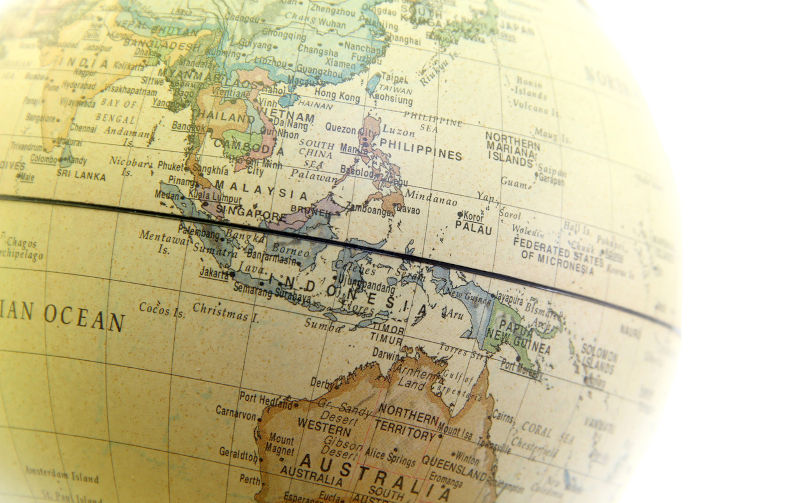Australia's paper sea horse
March 25, 2023
Many a joke telling session starts with Have you heard the one about ? The latest joke in the ASEAN region is .the one about AUKUS?
The punch line is 2050 because thats how long its estimated it will take for Australia to actually acquire the proposed nuclear powered submarines from either the US or the UK. The reality of the strategic impact of acquiring these submarines is diminished by the time lines involved.
However, jokes aside and despite the lengthy delay, the San Diego announcement shows an intent that sits uncomfortably with many other countries in the ASEAN region.
AUKUS is a product of Australias desire for a return to a Western dominated security environment in Asia. AUKUS partners and supporters are trapped in their own historical bubble of colonial longing. Many of these Western and Japanese policy makers talk and listen to only those who already agree with AUKUS partners and their view of the world. The AUKUS friendship announcement becomes a shout in this European and Japanese echo chamber.
Like those managing the ill-fated 1986 Challenger mission, the AUKUS support group are subject to a group-think approach that simply cannot see the problem, or solutions, from outside of their own perspectives.
The crafting of Australian foreign policy has been slowly transferred to what President Eisenhower called the military industrial complex. This represents a significant change in policy approach. Once defence was an arm of diplomacy, captured in Von Clausewitzs famous dictum that war is the continuation of politics by different means. This has gradually morphed so foreign policy is now an arm of defence and this colours all of the thinking around foreign engagement within the ASEAN region.
Regional responses from Jakarta and Kula Lumpur expressed outright concern at a developing arms race. Singapore and others were more politely muted but worried about any contribution to a more tense and unstable region. Singapores Prime Minister Lee Hsien Loong discussed these issues in his 2019 Shangri-La Dialogue address.
The San Diego announcement was also not universally welcomed in Australia. Apart from the stupidity of delaying submarine acquisition by 30 to 40 years, there are deep-seated concerns with the way the policy change was announced without consultation with parliament or the electorate.
It was not just French President Macron who was caught flat-footed by the earlier cancellation of the French submarine project which ironically required nuclear powered submarines to be retrofitted to become diesel powered. This very strange requirement was put in place because Australia was committed to nuclear non-proliferation and had no nuclear industry expertise. Apparently there are no such concerns with US or UK submarines.
That changed overnight with the announcement of the secret AUKUS deal. Overnight hundreds of small Australian businesses in South Australia who had tied their capital investment and growth to the French project were discarded without a second thought or any mention of compensation. Now they are told the opportunity will return in 10 years time, but thats after the expansion of shipyards in the US and the UK have been funded with Australian taxpayers dollars.
Professor Kerry Brown of Chinese Studies at Londons Kings College says AUKUS is Almost wholly symbolic. Even so, the brute fact is that China sits in the centre of the Asia Pacific region, utterly unavoidable, politically and economically. It cannot be wished away. Intentionally or unintentionally, its economic clout and its regional aspirations impact on all those around it.
The AUKUS announcement has stirred a dormant beast of anti-nuclear protest. The Australian publics appetite for a nuclear industry is limited which is why Australia has closed down its major uranium resource in Kakadu and has not developed any nuclear power options for its coal-dependent electricity grid.
Mike Scrafton, former advisor to the Minister for Defence, called the decision an example of magical thinking. The magical thinking of the nuclear submarine advocates imbues the vessels with the mystical power that the French placed in the Maginot Line, even though they are only imaginary. Unlike the Maginot Line, because the submarines dont exist, and wont for decades, if ever, a potential aggressor doesnt have the incentive to come up with tactical solutions.
The AUKUS announcement is evidence of a very dangerous approach to foreign policy formulation and engagement. Showing the influence of military, rather than diplomatic, thinking, the announcement is a full-frontal attack on the regional architecture of trade discussions. It immediately diminished the role Australia can play with RCEP and CPTPP, because Australia clearly volunteered itself as a complete proxy for the United States, and indeed, for the right-wing remnants of Trump’s United States.
This makes it difficult for Australia to argue for an independent assessment of issues within the region. This is an inevitable consequence when military voices dominate the discussion of diplomacy.
In the harsh light of reality, China will assess Australias acquisition of nuclear power submarines in 20 years time as no more than a paper seahorse. The consequences of this deft bumble of diplomacy has more significant immediate impacts on Australias ability to shape regional discussions.
Original version was published in South China Morning Post in October 19, 2021
This version has been updated.
